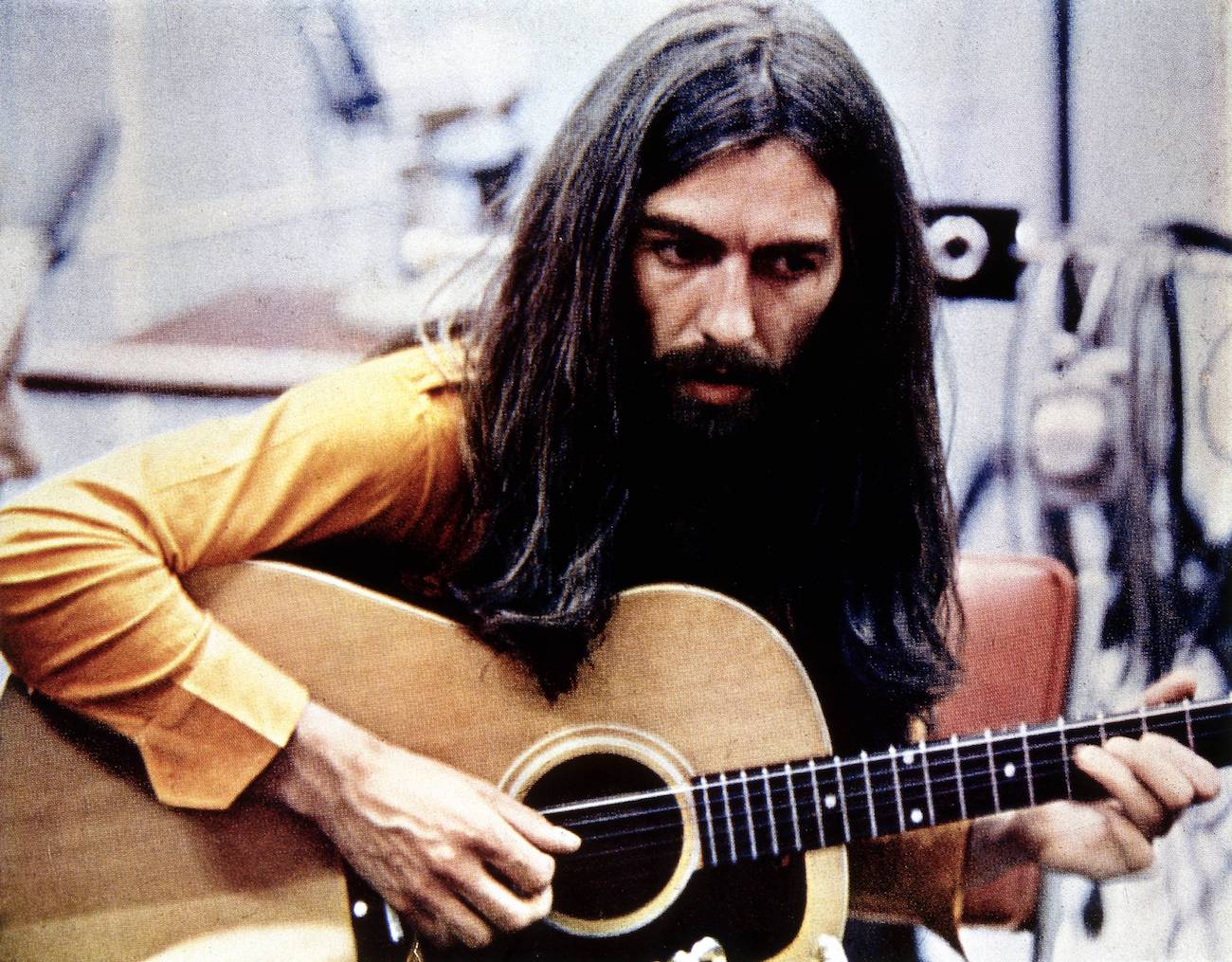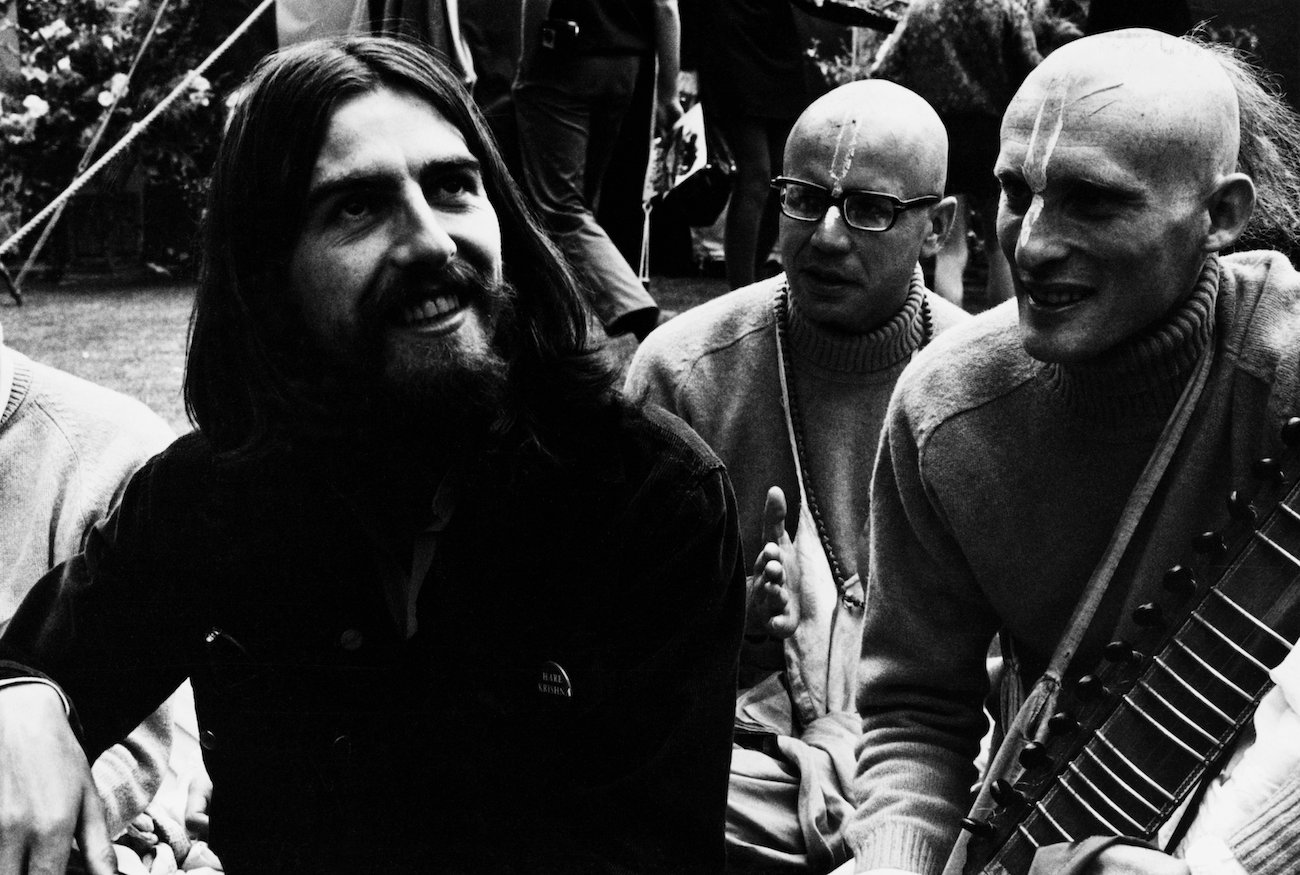
Fans Continued to Send George Harrison Thank-You Letters for ‘My Sweet Lord’ Into the 1980s
George Harrison brought spirituality to pop music with his 1970 song, “My Sweet Lord.”
He began his spiritual journey after his musical guru, Ravi Shankar, gave him spiritual texts and taught him that God is sound. Suddenly, George would’ve been glad to throw away his marriage and his famous band to learn more from Shankar.
However, George didn’t leave The Beatles or his wife. Instead, he incorporated religious themes into his songs like “Within You Without You” and “Long Long Long.” For the album cover of Sgt. Pepper’s Lonely Hearts Club Band, George added images of revered gurus from the Hindu faith as “clues to the spiritual aspect” of him.
However, George truly showed the world his spirituality in “My Sweet Lord.” He had no idea fans would accept the song and even thank him for it.

George Harrison released ‘My Sweet Lord’ because no one else was putting religion in popular music
In his 1980 memoir, I Me Mine, George wrote that the Edwin Hawkins Singers’ funk and gospel version of the 18th-century hymn “Oh Happy Day” inspired “My Sweet Lord.”
In the lyrics, George repeats part of a Hindu mantra, “Hare Krishna… Krishna, Krishna,” and interposes it with the Christian “Hallelujah.”
In Here Comes The Sun: The Spiritual And Musical Journey Of George Harrison, Joshua M. Greene quotes George saying, “I wanted to show that ‘Hallelujah’ and ‘Hare Krishna’ are quite the same thing. I did the voices singing ‘Hallelujah’ and then the change to ‘Hare Krishna’ so that people would be chanting the maha-mantra before they knew what was going on.”
George meant “My Sweet Lord” to be “a Western pop equivalent of a mantra, which repeats over and over again the holy names.”
Greene wrote, “The lyrics declared George’s purpose in undertaking a spiritual quest. ‘I really
want to see you,’ he sang. God was invisible to him but remained ‘sweet’ despite the anguish of their separation.”
“My Sweet Lord” spoke about George’s new-found purpose of finding God. However, he still feared its religious subject matter would offend some people.
One critic wrote that the song was “among the boldest steps in the history of popular music” yet with the potential to be “a fatal career move.” Greene continued, “The boldness was the naked emotion of George’s surrender to God. The gamble was whether fans would still accept him after realizing the depth of his
devotion.”
George decided to go for it because no one else put religion into popular music. “At that time,” George later explained, “nobody was committed to that type of music in the pop world. There was, I felt, a real need for that. So rather than sitting and waiting for somebody else, I decided to do it myself.
“A lot of times, we think, ‘Well, I agree with you, but I’m not going to actually stand up and be counted—too
risky.’ Everybody is always trying to keep themselves covered, stay commercial. So I thought, ‘Just do it.’ Nobody else is, and I’m sick of all these young people just boogying around, wasting their lives, you know.”
Fans continued to send George thank-you letters for ‘My Sweet Lord’
In I Me Mine, George wrote that he thought a lot about whether to do “My Sweet Lord.” He said, “I would be committing myself publicly and I anticipated that a lot of people might get weird about it. Many people fear the words ‘Lord’ and ‘God’–makes them angry for some strange reason.”
It all came down to the fear of the unknown. “It’s some sort of instinct in people,” George explained in Martin Scorsese’s documentary, George Harrison: Living in the Material World. However, his instinct to represent something he loved won the battle.
In his memoir, George continued, “The point was, I was sticking my neck out on the chopping block because now I would have to live up to something, but at the same time I thought, ‘Nobody’s saying it; I wish somebody else was doing it.’
“You know, everybody is going ‘Be-bob baby’–OK it may be good to dance to, but I was naive and thought we should express our feelings to each other–not suppress them and keep holding them back. Well, it was what I felt, and why should I be untrue to myself? I came to believe in the importance that if you feel something strong enough then you should say it.”
That message resonated with fans as well as the song’s spiritual one. Greene wrote, “Once the record made it to radio, letters addressed to George Harrison started pouring into the London temple from all parts of the world.
“It seemed a lot of people had been waiting for someone to validate their own search for God, and from the day the record was released, thank you letters started coming and never stopped.”
George said he continued to get the letters. “I still get letters from people,” he said in the 1980s, “so I know by the Lord’s grace I am a small part in the cosmic play.”
The song became a megahit
“My Sweet Lord” became George’s first solo single and his first No. 1. The song was also the biggest-selling single of 1971 in the U.K. Despite all of George’s worry, “My Sweet Lord” became a megahit.
It gave Elton John chills and made George’s fellow Beatle, John Lennon, think there must be a God.
George basked in the glow of his success, at least for a while. Bright Tunes Music later sued him for copyright infringement. However, that never overshadowed George’s love for the tune, nor his fans’.


